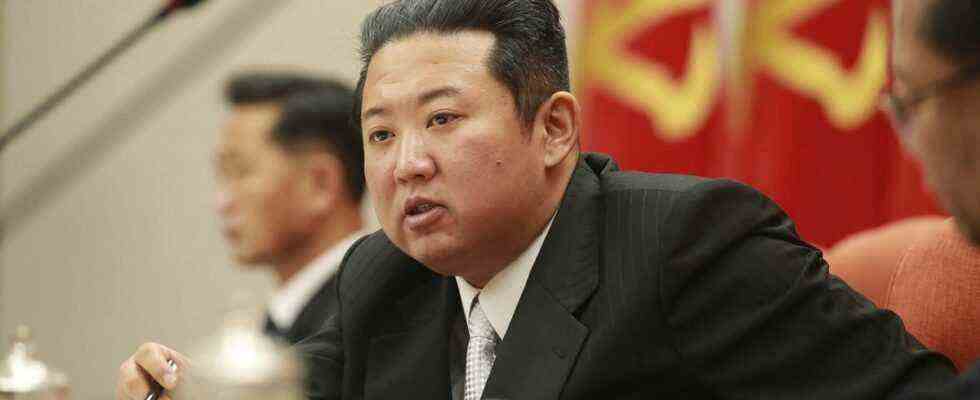Good news for North Korea’s ruler Kim Jong-un came from Seoul on Friday. Yonhap News Agency reported that South Korean prosecutors have filed charges against Park Sang-hak, head of the activist group Fighters for a Free North Korea. Reason: Park is said to have sent a total of ten helium balloons with system-critical texts and dollar bills from the south to the north. Kim refuses such subversion of his propaganda. In the agreement he negotiated with South Korean President Moon Jae-in in 2018, he was assured of a ban on balloon operations. The associated reform came into force in March 2021. And now the North Korea critic Park is threatened with imprisonment or at least a large fine for “attempting to violate the development of inter-Korean relations”.
Such a trial against freedom of expression does not fit well with the democratic government of former freedom fighter Moon. But maybe Moon can at least calm down the Kim regime with it. It would be necessary because the past few weeks have not been good for the peace process in Korea.
Authoritarian North Korea presents itself as a heavily armed regional power, while in South Korea an opponent of the regime has been charged
North Korea has already completed six missile tests in the new year, two this week alone. On Friday, North Korea’s state news agency KCNA reported: “The Academy of Defense Sciences of the Democratic People’s Republic of Korea conducted test launches on Tuesday to update the long-range cruise missile system and on Thursday to assess the performance of a conventional warhead for a tactical surface-to-surface guided missile”. Kim Jong-un visited an ammunition factory “which produces a large weapon system” on Thursday.
Authoritarian North Korea presents itself as a heavily armed regional power, while in South Korea an opponent of the regime has been charged. It looks as if Kim Jong-un is dictating the rules of inner-Korean relations.
Food is in short supply after nearly two years of lockdown. But the armor works
At the end of December, Kim Jong-un gave a speech to the Labor Party plenum in which he spoke conspicuously much about agriculture. That fit the bill. After two years of almost total lockdown because of the corona virus, food is scarce in North Korea. On the other hand, Kim had little to say about the arms industry. It’s running. After this January, one gets the impression that Kim’s regime finds it easier to develop nuclear weapons than to grow enough crops for its people.
Kim Jong-un needs weapons testing as a deterrent. He needs deterrence to protect his power. And protecting his power is his primary goal. Moon Jae-in worked during his tenure, which ended in May, for a peace treaty that would also officially end the Korean War, almost 70 years after it ended. The advances seemed to be working. But of course, Moon could not reach economic deals with Kim that violate United Nations sanctions. That made the reconciliation worthless to Kim. And now Kim seems to see a peace treaty more as a threat to his dynasty.
If Kim wanted to cultivate the old enmities with his January tests, he certainly succeeded. Moon stands there like a prince of peace in a hail of bullets. Moon’s party friend and potential successor Lee Jae-myung also sees his course in danger. He also wants rapprochement. Lee has “emphatically” condemned the missile tests. He calls it “an act that divides the public”.
After the second January test, the possibility of a South Korean pre-emptive strike is being discussed
The test series provides arguments for the supporters of the conservative presidential candidate Yoon Suk-yeol. After the second January test, the latter pleaded for the possibility of a South Korean pre-emptive strike. Japan’s Prime Minister Fumio Kishida has similar plans. In a recent keynote speech, he said Japan was planning a new defense policy and was not ruling out “the so-called ability to attack enemy bases.”
Nobody can look past North Korea’s weapons tests. “We take Pyongyang’s destabilizing behavior seriously,” Pentagon spokesman John Kirby said in Washington. In Seoul on Thursday, commanders of the South Korean and American armed forces discussed how they could strengthen deterrence.
And what does North Korea say? Kim Jong-un has recently criticized Japan’s defense considerations. And on Friday, North Korea’s UN ambassador Han Tae-song asserted that the series of tests meant “no threat to the security of neighboring countries.” The regime is already beginning to realize that its recent arms show may have gone too far.

